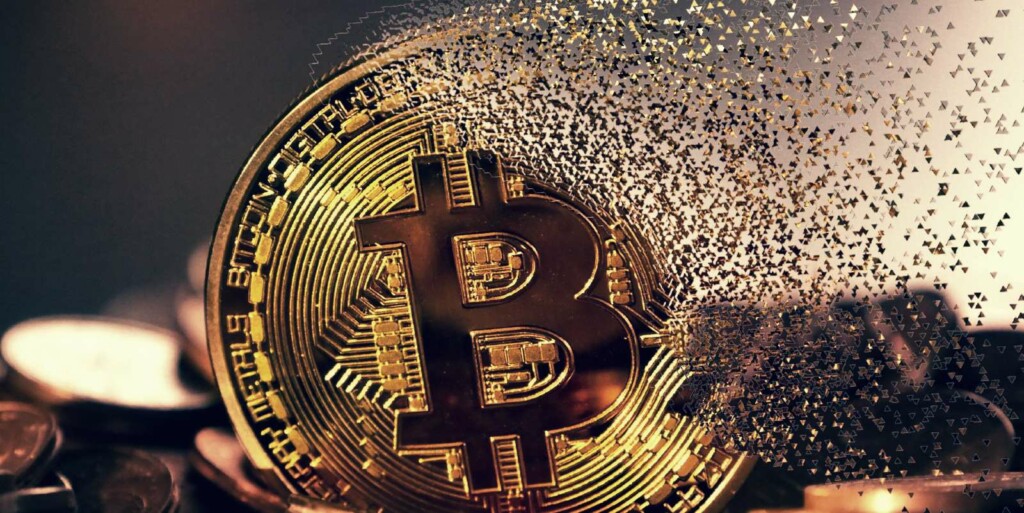Helping Scam Victims Understand The Social Isolation Risks After A Relationship Scam
Understanding the Risks to Scam Victims after the Scam Ends!
Scam Victim Recovery Psychology
Author:
• Tim McGuinness, Ph.D. – Anthropologist, Scientist, Director of the Society of Citizens Against Relationship Scams Inc.
Originally published on RomanceScamsNOW.com in 2021
About This Article
The emergence of romance scams not only wreaks financial havoc but also plunges victims into profound social isolation. Throughout and after the scam, individuals often opt for self-imposed seclusion, severing ties with loved ones as they grapple with feelings of embarrassment, remorse, and apprehension of condemnation.
This isolation exacts a toll on mental well-being, exacerbating sensations of solitude, apprehension, and despondency. Scammers employ manipulation tactics to curtail victims’ social interactions, intensifying their isolation and reinforcing dominance. Even post-scam, victims contend with emotional anguish, compounding their inclination to retreat from social bonds.
Social isolation and loneliness are linked to adverse health outcomes, including heightened risks of cardiovascular ailments, dementia, and premature mortality.
Recognizing signs of isolation and seeking aid from trusted professionals or support networks is imperative for victims to mitigate the detrimental repercussions of their ordeal and reconnect with society.
The vigilance of friends and family in discerning signs of isolation can also play a pivotal role in extending support and intervention to those in need.
The Risks of Social Isolation with Scam Victims caused by Romance Scams
Understanding the Effects of Social Isolation on Scam Victims’ Mental Health
People around the world have taken unprecedented safety measures during the COVID-19 pandemic. Physical distancing is critical for slowing the spread of infectious diseases, but experts suggest solitude carries its own health cost: Social isolation can affect mental health.
However, almost all scam victims go through their own quarantine by isolating themselves during the scam and afterward.
This isolation can have serious and lasting effects on victims, especially when they are trying to recover from these experiences and most need the support of others.
What Is Social Isolation?
Social isolation is not necessarily bad; most people crave solitude at least occasionally. Being alone can be relaxing, meditative, and rejuvenating. Social isolation typically refers to solitude that is unwanted and unhealthy.
Socially isolated people may lack friends or close coworkers, and they often feel lonely or depressed. They can suffer from low self-esteem or anxiety. These are the exact kinds of feelings that scam victims feel.
The following symptoms associated with social isolation are warning signs of unhealthy social isolation:
- Avoiding social interactions, including those that were once enjoyable
- Canceling plans frequently and feeling relief when plans are canceled
- Experiencing anxiety or panic when thinking about social interactions
- Feeling distressed during periods of solitude
- Feeling dread associated with social activities
- Spending large amounts of time alone or with extremely limited contact with others
Social isolation can involve emotional isolation, which is an unwillingness or inability to share one’s feelings with others. When socially isolated individuals lack emotional interaction and support, they can become emotionally numb — detached from their own feelings.
When a person goes through a traumatic experience, like a romance scam, for example, there is a multitude of emotions that can cause them to self-isolate. These include fear of discovery, not knowing how to talk about what happened, shame and guilt, fear of being judged, and the fear of being ostracized by those they know.
Isolation During The Scam
During a typical relationship scam, the scammer manipulates the victim to limit their social interactions. They do this through manipulative techniques such as Gaslighting – convincing the victim that it is basically them against the world. Victims deceive family and friends and systematically isolate themselves. This benefits the scammer because it means the victim is more under their control and that there will be less contact with others that might make them see the light.
Isolation After The Scam Ends
After the scam victims are going through a broad range of emotional distress. This includes grief, body chemical withdrawal, trauma responses (fight, flight, freeze, and fawn), plus shame, guilt, and self-blame. This makes victims even more likely to isolate themselves from people that they believe might blame, shame, or ridicule them. This shame & guilt are powerful emotions that only make the period after the scam that much worse and inhibit their emotional recovery.
Isolation and Loneliness
When experts study isolation’s causes and impacts, they distinguish between social isolation and loneliness.
Social isolation is an objective lack of social relationships or infrequency of social contact. Loneliness is a subjective feeling of isolation. A person can be socially isolated but not feel lonely. A person can also feel lonely when they are surrounded by people.
Because of the secrets that scam victims carry their isolation tends to fuel loneliness.
Nonetheless, isolation and loneliness are very much linked. Studies of loneliness’s causes, symptoms, and impacts shed light on the potential negative effects of this isolation.
Some Of The Causes Of Social Isolation?
Many circumstances can cause people to be isolated from others or to choose self-isolation:
- Intimate partner violence. People in abusive relationships sometimes avoid contact with family, friends, or coworkers because of an unwillingness to reveal their true situation.
- Loss of loved ones. Isolating after the loss of friends or family members can be common, especially among seniors who have lost many loved ones in their age group.
- Mental health issues. Issues such as anxiety, depression, and low self-esteem often result from social isolation, but they can also cause it.
- Remote location. Individuals who live in remote areas or who are geographically separated from family and friends due to job duties (military service, for example) can experience feelings of isolation.
- Physical impairments. Physical challenges that limit mobility can reduce an individual’s ability to interact socially. Some people with physical disabilities feel ashamed of their disability or appearance, which can make them reluctant to interact socially. Hearing and vision impairments can also create a sense of isolation.
- Social media. Communication via social media helps some people stay connected to others, but it can lead to isolation if it becomes a substitute for meaningful conversations and in-person socialization.
- Unemployment. The shame associated with losing a job or being unable to secure new employment can lead individuals to self-isolate.
Social isolation can also result from physical distancing measures such as those necessitated by the COVID-19 pandemic.
Now couple those with the after-effects of the scam and the likelihood of isolation grows substantially. Guilt and shame are overwhelming emotions that cause victims to hide, stay silent, and avoid contact.
Effects of Isolation and Loneliness
Mental and physical health are interconnected. Isolation’s adverse health consequences range from sleeplessness to reduced immune function. Loneliness is associated with higher anxiety, depression, and suicide rates.
Isolation and loneliness are also linked to poor cardiovascular health and cognitive function:
- A study led by an epidemiologist at Newcastle University concluded that deficiencies in social relationships are associated with a higher risk for coronary heart disease and stroke.
- A study published in The Journals of Gerontology concluded that loneliness was associated with a 40 percent increase in the risk of dementia.
- Links between social isolation and serious medical conditions are not fully understood, but ample evidence supports the connection. A study published in the American Journal of Epidemiology linked social isolation with higher risks of premature mortality. The Centers for Disease Control and Prevention (CDC) points to loneliness and isolation as serious public health risks.
Some effects of social isolation are specific to pandemics or other public health situations that require people to physically distance themselves. When you combine that with the effects of relationship scams both during and after it is a recipe for disaster.
Loneliness and depression can also go hand in hand with anxiety and fear about the dangers associated with the event that made physical distancing measures necessary. Victims are especially fearful about others learning what happened and how much money they lost.
High-Risk Groups
Relationship scam victims are a high-risk group for isolation and its damaging effects. It is for this reason and others that SCARS recommends that are scam victims find local trauma counseling or therapy. This is important to at least be evaluated within the first few months after a scam, or if isolation has become a part of the victim’s life.
Self-Care Strategies
It is important for individuals dealing with social isolation to have self-care strategies. This is particularly true when the factors contributing to isolation present real barriers to accessing outside resources, such as people who live in remote areas may not have easy in-person access to mental health professionals.
Individuals can lessen isolation’s negative effects by taking steps to address the challenges isolation presents:
- Engage in relaxing activities. Exercise and stretching, reading, listening to music, meditation and prayer, journaling, and hobbies can help relieve stress that can be associated with isolation.
- Follow a routine. Daily routines promote a sense of purpose and normalcy.
- Maintain healthy habits. Eating well, getting enough sleep, and engaging in physical activity can promote better mental health.
- Stay connected. If conditions limit in-person contact, phone calls, email, texting, social media platforms, and videoconferencing can be used to stay in touch.
- Stay informed. Keeping in the loop can be particularly important for those isolated for any reason, but even more so after being manipulated heavily. Learning the real facts about scams, scammers, and the psychology of how it all works can help people avoid feeling panicky. That said, controlling media consumption is also helpful –– too much exposure to negative news about scams can feed anxiety. Especially avoid the endless streams of scammer or stolen photos that can increase feelings of hopelessness.
Support Groups
Professionally managed scam victim support groups can also play a role in helping the victim re-integrate with others through group interactions and participation. SCARS offers such groups and has found significant success with those victims willing to commit to their recovery. SCARS scam victim support groups are offered in English or Spanish, plus SCARS partners and affiliates offer them around the world.
- For the SCARS English language support group go here: support.AgainstScams.org
- For Spanish go to: apoyo.ContraEstafas.org
Therapeutic Treatment
Individuals suffering from the effects of scam-based isolation or loneliness should be mindful of their symptoms and seek help from experts if they persist or become severe.
Trauma therapists help by exploring underlying issues related to isolation or self-isolation. For example, a person’s isolation may be a sign of depression or an anxiety disorder amplified by the relationship scam ending.
In addition to identifying underlying issues, a trauma counselor or therapist can develop a treatment plan that helps victims regain a sense of control over their lives.
Types of therapy used to treat isolation might include cognitive-behavioral therapy (CBT) and exposure therapy:
- Cognitive-behavioral therapy. CBT is a talk therapy that helps people become more aware of negative or inaccurate thoughts that affect their behavior. CBT sessions can help individuals identify misperceptions and reshape negative thinking.
- Exposure therapy. Exposure therapy programs help people break avoidance and fear patterns. During exposure therapy sessions, in a safe environment, individuals are exposed (in person or in their imagination) to situations they avoid. They confront fears, process emotions, and manage anxiety.
When to Seek Professional Help
Individuals who experience any of the following should consider consulting a medical or mental health professional:
- Confused thinking
- Delusions or hallucinations
- Excessive feelings of anger or fear
- Extreme swings in emotion
- Inability to cope with daily problems
- Major changes in eating or sleeping patterns
- Numerous unexplained physical ailments
- Prolonged depression
- Social withdrawal
- Substance abuse
When circumstances limit in-person contact, people can connect with a mental health professional by phone or telemedicine.
Keep An Eye Out!
Some isolated people can find it difficult to ask for help. When others keep an eye out for those who might need assistance but are hesitant to ask, they can play a part in lessening isolation’s negative effects on them.
Please Rate This Article
Please Leave Us Your Comment
Also, tell us of any topics we might have missed.
Leave a Reply
Thank you for your comment. You may receive an email to follow up. We never share your data with marketers.
-/ 30 /-
What do you think about this?
Please share your thoughts in a comment above!
-/ 30 /-
What do you think about this?
Please share your thoughts in a comment above!
SCARS LINKS: AgainstScams.org RomanceScamsNOW.com ContraEstafas.org ScammerPhotos.com Anyscam.com ScamsNOW.com
reporting.AgainstScams.org support.AgainstScams.org membership.AgainstScams.org donate.AgainstScams.org shop.AgainstScams.org
youtube.AgainstScams.org linkedin.AgainstScams.org facebook.AgainstScams.org
ARTICLE RATING
TABLE OF CONTENTS
CATEGORIES
MOST POPULAR COMMENTED ARTICLES
POPULAR ARTICLES
U.S. & Canada Suicide Lifeline 988
![NavyLogo@4x-81[1]](https://scamsnow.com/wp-content/uploads/2025/04/NavyLogo@4x-811.png)
ARTICLE META
WHAT PEOPLE ARE TALKING ABOUT LATEST SITE COMMENTS
See Comments for this Article at the Bottom of the Page
on Samurai Wisdom and Rituals for Clearing the Mind After Scam Trauma – 2025 – [VIDEOS]: “A great guide on how to move forward in our recovery process with a calm mind, cleansed on an ongoing…” Jun 28, 07:34
on Delayed Gratification and Patience in Scam Victim Recovery – 2025 – [VIDEOS]: “We want to recover quickly and… we make new mistakes. How not to speed up the recovery process, how to…” Jun 28, 06:41
on The Unique Injury Of Betrayal Trauma On Scam Victims – 2024: “Primarily because you did not see it coming” Jun 27, 23:57
on Changes In A Scam Victim’s Life: “I really detest the way my trust in others has been affected by the scamming I went through. I used…” Jun 27, 14:47
on The Unique Injury Of Betrayal Trauma On Scam Victims – 2024: “Betrayal Trauma is the worst feeling ever. Why does it seem so much worse when a scammer does that to…” Jun 27, 14:34
on EMDR Therapy For Scam Victims’ Trauma – A Part Of The Recovery Process For Many – 2024: “Very comprehensive article explaining all aspects of EMDR. I’d only heard of it before and now I have a much…” Jun 26, 19:01
on Forgiving Yourself After Surviving a Romance or Investment Scam – 2025: “Thank you for this valuable article. Self-forgiveness was for me the biggest step that led to my recovery. That also…” Jun 26, 17:28
on Counseling And Your Native Language: “These points make perfect sense. I can’t imagine trying to express complex emotions in a second language. I realize many…” Jun 26, 16:05
on Thought-Terminating Cliches – How What You and Others Say Stops Critical Thinking and Recovery for Scam Victims – 2025: “I didn’t realize that these “innocent phrases” clichés ending thoughts, can have such effect / negative -inhibiting / on our…” Jun 26, 14:48
on Scam Victim Resistance In Support Groups Therapy Or Counseling Can Destroy Opportunities For Recovery – 2024: “Working with either a support group or therapist to me means a self commitment to actively participating in the therapy.…” Jun 24, 21:01
on ‘I Just Want To Forget It’ – Denial & Avoidance Are Natural But Will Not Help Scam Victims On Their Path To Recovery From Scams – 2024: “My financial loss, the shock and betrayal of the crime ending all combined to fray my nerves and spend hours…” Jun 24, 20:10
on You Hate Being Told What To Do? How Your Rebellious Mentality Can Sabotage Your Recovery – 2025: “I am a bit of a rebel, and the moment someone tells me to do something, worse, does it even…” Jun 24, 15:04
on You Hate Being Told What To Do? How Your Rebellious Mentality Can Sabotage Your Recovery – 2025: “You are very welcome” Jun 24, 03:01
on You Hate Being Told What To Do? How Your Rebellious Mentality Can Sabotage Your Recovery – 2025: “This is a great article, which makes perfect sense as to why anyone would resist the help offered to them.…” Jun 23, 20:01
on Scam Victims’ Responsibilities – 2021 [Updated 2025]: “Thank you for this article. As I continue my journey, I focus on the here and now and let the…” Jun 21, 16:26
on Scam Victims Avoid Or Escape The Aftermath Of Scams – How Denial And Distraction Avoid Confronting Reality – 2024: “In the earliest days after my crime I felt powerless, helpless and weak. I had been through so much in…” Jun 21, 14:46
on Problems and Opportunities – Thoughts on Psychological Reframing – 2025: “An article that really helped me look at the problems in my life from a different point of view and…” Jun 21, 14:42
on Scam Victims Avoid Or Escape The Aftermath Of Scams – How Denial And Distraction Avoid Confronting Reality – 2024: “Thank you for another great article! This discussion of avoidance and other tactics some can use to deny the existence…” Jun 17, 12:20
on Helping Scam Victims Understand The Social Isolation Risks After A Relationship Scam – 2024: “This article very informatively shows the risk of social isolation especially after a scam. Although I can acknowledge the list…” Jun 17, 11:31
Important Information for New Scam Victims
Please visit www.ScamVictimsSupport.org – a SCARS Website for New Scam Victims & Sextortion Victims
SCARS Institute now offers a free recovery program at www.SCARSeducation.org
Please visit www.ScamPsychology.org – to more fully understand the psychological concepts involved in scams and scam victim recovery
If you are looking for local trauma counselors, please visit counseling.AgainstScams.org
If you need to speak with someone now, you can dial 988 or find phone numbers for crisis hotlines all around the world here: www.opencounseling.com/suicide-hotlines
Statement About Victim Blaming
Some of our articles discuss various aspects of victims. This is both about better understanding victims (the science of victimology) and their behaviors and psychology. This helps us to educate victims/survivors about why these crimes happened and not to blame themselves, better develop recovery programs, and help victims avoid scams in the future. At times, this may sound like blaming the victim, but it does not blame scam victims; we are simply explaining the hows and whys of the experience victims have.
These articles, about the Psychology of Scams or Victim Psychology – meaning that all humans have psychological or cognitive characteristics in common that can either be exploited or work against us – help us all to understand the unique challenges victims face before, during, and after scams, fraud, or cybercrimes. These sometimes talk about some of the vulnerabilities the scammers exploit. Victims rarely have control of them or are even aware of them, until something like a scam happens, and then they can learn how their mind works and how to overcome these mechanisms.
Articles like these help victims and others understand these processes and how to help prevent them from being exploited again or to help them recover more easily by understanding their post-scam behaviors. Learn more about the Psychology of Scams at www.ScamPsychology.org
SCARS INSTITUTE RESOURCES:
If You Have Been Victimized By A Scam Or Cybercrime
♦ If you are a victim of scams, go to www.ScamVictimsSupport.org for real knowledge and help
♦ Enroll in SCARS Scam Survivor’s School now at www.SCARSeducation.org
♦ To report criminals, visit https://reporting.AgainstScams.org – we will NEVER give your data to money recovery companies like some do!
♦ Follow us and find our podcasts, webinars, and helpful videos on YouTube: https://www.youtube.com/@RomancescamsNowcom
♦ Learn about the Psychology of Scams at www.ScamPsychology.org
♦ Dig deeper into the reality of scams, fraud, and cybercrime at www.ScamsNOW.com and www.RomanceScamsNOW.com
♦ Scam Survivor’s Stories: www.ScamSurvivorStories.org
♦ For Scam Victim Advocates visit www.ScamVictimsAdvocates.org
♦ See more scammer photos on www.ScammerPhotos.com
You can also find the SCARS Institute on Facebook, Instagram, X, LinkedIn, and TruthSocial
Psychology Disclaimer:
All articles about psychology and the human brain on this website are for information & education only
The information provided in this and other SCARS articles are intended for educational and self-help purposes only and should not be construed as a substitute for professional therapy or counseling.
Note about Mindfulness: Mindfulness practices have the potential to create psychological distress for some individuals. Please consult a mental health professional or experienced meditation instructor for guidance should you encounter difficulties.
While any self-help techniques outlined herein may be beneficial for scam victims seeking to recover from their experience and move towards recovery, it is important to consult with a qualified mental health professional before initiating any course of action. Each individual’s experience and needs are unique, and what works for one person may not be suitable for another.
Additionally, any approach may not be appropriate for individuals with certain pre-existing mental health conditions or trauma histories. It is advisable to seek guidance from a licensed therapist or counselor who can provide personalized support, guidance, and treatment tailored to your specific needs.
If you are experiencing significant distress or emotional difficulties related to a scam or other traumatic event, please consult your doctor or mental health provider for appropriate care and support.
Also read our SCARS Institute Statement about Professional Care for Scam Victims – click here
If you are in crisis, feeling desperate, or in despair, please call 988 or your local crisis hotline.
More ScamsNOW.com Articles
A Question of Trust
At the SCARS Institute, we invite you to do your own research on the topics we speak about and publish. Our team investigates the subject being discussed, especially when it comes to understanding the scam victims-survivors’ experience. You can do Google searches, but in many cases, you will have to wade through scientific papers and studies. However, remember that biases and perspectives matter and influence the outcome. Regardless, we encourage you to explore these topics as thoroughly as you can for your own awareness.















![scars-institute[1]](https://scamsnow.com/wp-content/uploads/2025/04/scars-institute1.png)
![niprc1.png1_-150×1501-1[1]](https://scamsnow.com/wp-content/uploads/2025/04/niprc1.png1_-150x1501-11.webp)

This article very informatively shows the risk of social isolation especially after a scam. Although I can acknowledge the list of warning signs and the potential risks I believe that society at large just isn’t ready to be helpful to those of us that have been hurt through criminal fraud. Just as rape victims are blamed for being raped, fraud victims are blamed for their fraud. This makes it even harder to work toward overcoming social isolation. So far I have shared my story with 4 and have been shot down by 3. I thank God for the one who believes me and is supportive. She helps me by taking me out for coffee on a regular basis at a local coffee shop. This way I have to be in a room of people and possibly being the center of interest even briefly. And even though this scares me each and every time I accept her invitation and go.
I remembered reading this article once before when I first joined SCARS Institute. I made sure to participate, interact and join in activities with family and friends whenever possible. Setting boundaries in how much time spent with them gave me the freedom and flexibility I need to do other things.
Men and women were not created to be alone. Socialization and the sense of community comes natural to human beings. Being isolated is the total opposite of that. When we feel we want to be alone, or encouraged by others to separate from family and friends, then something is wrong. Lesson learned!!!
I never thought that Isolation could hurt so much. It took me a long time to realize it and to accept I needed to make an effort to step out of it.